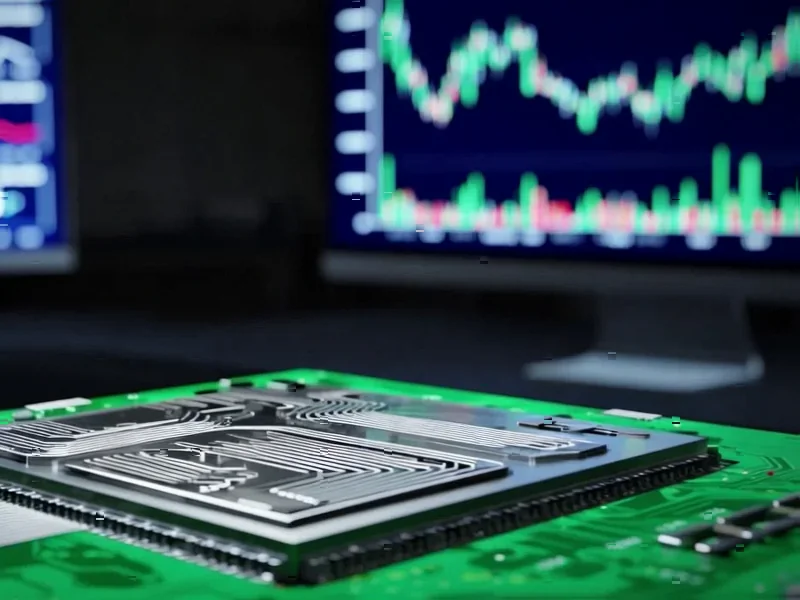According to Fast Company, Microsoft has received approval to ship more than 60,000 Nvidia AI chips to the United Arab Emirates under licenses granted in September with “stringent” safeguards. The shipment includes Nvidia’s advanced GB300 Grace Blackwell chips destined for data centers in the Middle Eastern country. This development appears to contradict former President Donald Trump’s recent remarks in a “60 Minutes” interview where he stated he wouldn’t allow Nvidia to sell its most advanced chips to China when asked by CBS News’ Norah O’Donnell. The approval represents a significant test of U.S. export control policies for advanced AI technology.
The Blackwell Architecture’s Strategic Importance
The GB300 Grace Blackwell chips represent Nvidia’s most advanced AI computing platform, featuring a revolutionary architecture that combines Grace CPU and Blackwell GPU technologies into a single unified system. What makes these chips particularly significant for AI development is their ability to handle trillion-parameter models with unprecedented efficiency. The Blackwell platform’s transformer engine specifically accelerates the core mathematical operations behind large language models, making it essential for training next-generation AI systems. At 60,000 units, this shipment represents enough computational power to train multiple frontier AI models simultaneously, potentially positioning the UAE as a significant player in the global AI race.
The Geopolitical Tightrope of AI Export Controls
This approval reveals the complex balancing act the U.S. government faces in regulating AI technology exports. While preventing sensitive technology from reaching geopolitical rivals remains a priority, the administration must also consider the economic interests of American companies and maintaining alliances with strategic partners. The UAE’s status as a U.S. ally and its growing technology ambitions likely factored into this decision. However, the approval of such advanced chips raises questions about where the administration draws the line between allies and potential technology transfer risks, especially given the UAE’s extensive economic ties with China and other nations that might seek access to cutting-edge AI capabilities.
UAE’s Strategic Positioning in Global AI Infrastructure
The scale of this shipment—60,000 advanced AI chips—signals the UAE’s serious commitment to becoming a global AI hub. This isn’t merely about acquiring computing power; it’s about building foundational infrastructure that can support sovereign AI development and attract international AI companies. The concentration of this much advanced AI compute in UAE data centers could create a strategic advantage for the country in hosting and developing AI services for the broader Middle East, Africa, and South Asian markets. Microsoft’s investment aligns with the UAE’s National Strategy for Artificial Intelligence 2031, which aims to position the country as a leader in AI adoption and development.
Technical and Security Implementation Complexities
The “stringent safeguards” mentioned in the approval likely involve multiple layers of technical controls that go beyond typical export restrictions. These probably include hardware-level monitoring, usage restrictions that prevent retransfer, and potentially even remote disablement capabilities. Implementing such controls at scale across 60,000 chips presents significant technical challenges, requiring specialized firmware, secure boot processes, and continuous compliance monitoring. Microsoft will need to maintain detailed audit trails of chip usage while ensuring these security measures don’t compromise performance for legitimate AI workloads—a delicate balance that has proven challenging in previous high-tech export control scenarios.
Broader Implications for Global AI Competition
This deal demonstrates how advanced AI compute is becoming a strategic resource comparable to energy resources in the 20th century. The concentration of such significant AI processing power in the UAE could accelerate the fragmentation of global AI development along regional lines. Other nations may now feel pressure to secure similar arrangements or develop domestic alternatives, potentially leading to a new era of AI nationalism. For cloud providers like Microsoft, this represents both an opportunity and a risk—the ability to deploy advanced AI infrastructure globally is commercially valuable, but navigating the complex web of export controls requires sophisticated legal and technical capabilities that may disadvantage smaller competitors.




